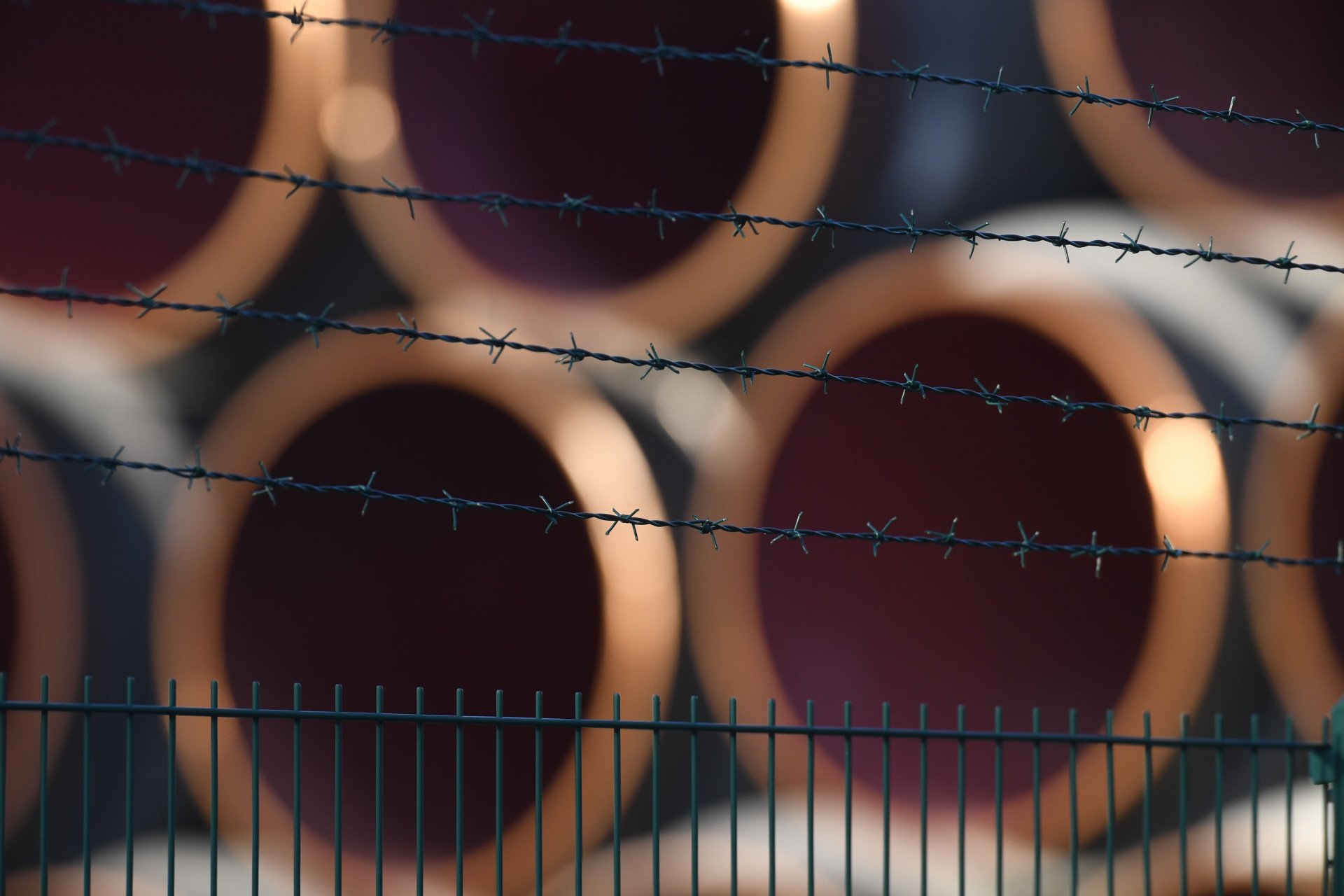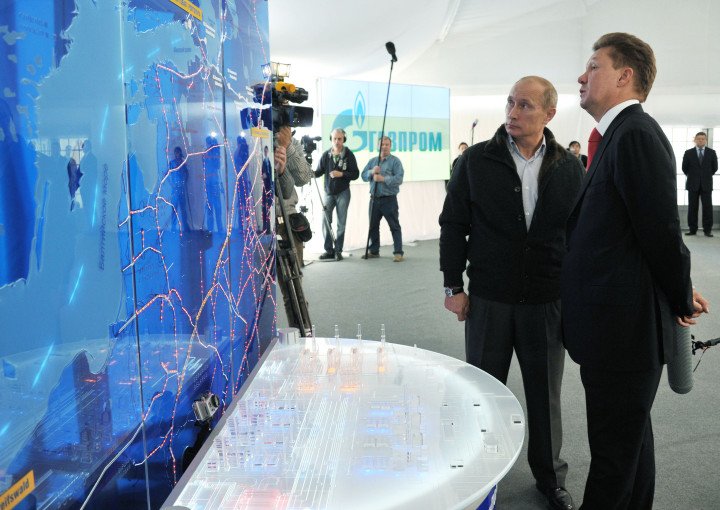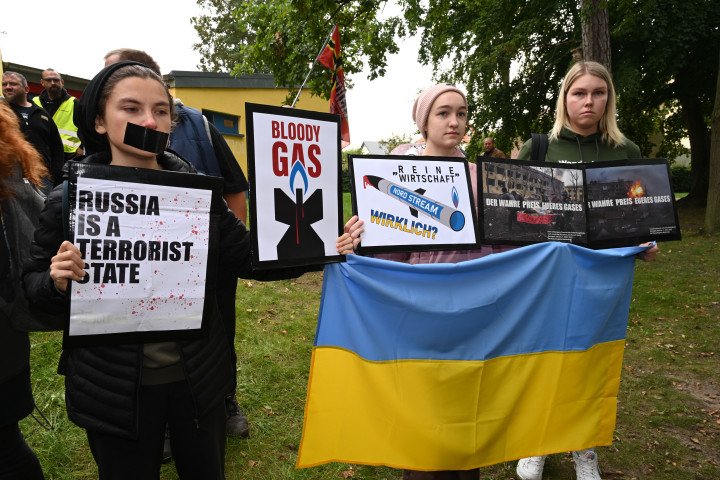- Category
- War in Ukraine
Russia’s Secret Plan to Revive Nord Stream "Blood Gas" Pipeline That Fueled War and Blackmailed Europe

New investigations suggest Russia is secretly laying the groundwork to restore its Nord Stream pipelines—an infamous energy project once used to fund its war on Ukraine, blackmail Europe, and spread corruption across the continent. What’s behind the pipeline’s potential comeback—and why are experts calling it “blood gas”?
Russia is suspected of preparing to restore its Nord Stream pipelines, according to a new investigation by the Russian outlet Important Stories (iStories).
These pipelines, once central to Russia’s grip on Europe, helped fuel the Kremlin’s war machine, enabled energy blackmail, and spread corruption under the guise of economic cooperation. Experts have long warned that Nord Stream was never just about gas—the project was always more a geopolitical weapon than economic infrastructure.
In 2021, months before its full-scale invasion of Ukraine, Russia launched what the Center for European Policy Analysis (CEPA) described as a “gas war,” to deliberately fuel “European fear of an energy famine and to ratchet up profits” and prepare for its invasion.
Nord Stream 1 began operating in 2011. Its twin, Nord Stream 2, was completed in 2021 but never launched due to international sanctions. Together, the pipelines were designed to funnel 110 billion cubic meters of Russian gas into Europe each year.
Fact check: Russia's Gazprom owns no pipelines in Ukraine.
— UNITED24 Media (@United24media) April 16, 2025
The entire gas network—37,000 km of it—is state-owned and fully controlled by Kyiv.
Read more ⬇️https://t.co/9z5rTek7wv pic.twitter.com/RccYaDfgSk
After the invasion, three of the four pipelines were sabotaged—some experts say by Russia itself. In 2009, Turkmenistan accused Gazprom—Russia’s state-controlled gas giant—of doing precisely that, triggering an explosion bearing many similarities to the Nord Stream sabotage.
Some European leaders have vowed not to repeat past mistakes. German Economy Minister Robert Habeck said restarting the project would be “absolutely the wrong direction,” warning that “the lesson we learned in 2022 could be forgotten.” Russia’s Foreign Minister Sergei Lavrov responded by calling European leaders “either [mentally] unwell or suicidal.”
CEPA analysts argue that any attempt to revive Nord Stream would be “highly contentious and geopolitically dangerous,” pointing to the vast evidence of how Russia has used gas exports to inflict harm on Europe. As they put it:
It is no exaggeration to describe this contaminated product as blood gas; like the African blood diamonds mined to fund wars, this gas will be funding Russia’s aggression against ordinary Ukrainians.
CEPA
Potential Nord Stream revival
iStories’ investigation found several indirect signs that point to renewed activity by a Russian company–Pipeline Coatings and Technologies–previously involved in processing pipes for the pipelines, which may be linked to Arkady Rotenberg, a former top manager of Gazprom
Rotenberg is a sanctioned Russian billionaire with networks of offshore wealth. With his brother Boris Rotenberg, he was the co-owner of the Stroygazmontazh (S.G.M. group), the largest construction company for gas pipelines and electrical power supply lines in Russia. Stroygazmontazh also managed the construction of the illegally built Crimean Bridge over the Kerch Strait—known as the “achilles heel of Russian logistics”—to support Russia’s invasion and occupation of Ukraine.
Pipeline Coatings and Technologies, which was involved in constructing the Nord Stream 2 pipeline, appears to be preparing for a large-scale order and actively purchasing patents related to pipeline technology, a source close to Gazprom’s leadership revealed to the investigators.
“The concrete coating technology was originally Western, but many technical nuances were patented in Russia,” the source said. “Now, the company is buying them up to be ready for a potential order and avoid paying third parties if the project moves forward.”
Russia’s Pipe Producers Association which assists in the implementation of domestic pipeline production for offshore gas and oil fields, has recently been “discussing subsea pipeline requirements,” the source said.
“Given Gazprom’s current situation, there is no need for such discussions,” the source told iStories. “There are no major projects requiring these specialized pipes.”
Oil and gas market expert Mikhail Krutikhin claimed that “Gazprom currently has no large-scale projects involving seabed pipelines.”
This behind-the-scenes activity gained new relevance in January 2025, when the Danish Energy Agency granted permission to preserve the damaged Nord Stream 2 pipeline in the Baltic Sea by “installing specially manufactured plugs at each of the open pipe ends to prevent further gas blowout and the injection of oxygenated seawater.” The agency said that it's obliged under international law to permit the repairs.
Investigators highlighted that these repairs could “potentially speed up and facilitate restoration,” and its source is suspicious of the timing of these restorations. “For over two years, the destroyed section of Nord Stream didn’t prompt any action,” the source told iStories. “Now, suddenly, Nord Stream 2’s operator—facing bankruptcy—manages to secure permission for preservation work.”

How Russian-state Gazprom controlled Europe’s gas flows
In 2008, Russia’s late Boris Nemtsov and Vladimir Milov published a white paper on Gazprom. They argued that since the early 2000s, Gazprom has been used as a “government wallet” for the Kremlin's elite.
They described Gazprom as Putin’s “personal special project”, noting that he oversaw its operations in detail. “One can, as a result, use it as a measure of the results of Putin’s actions,” they wrote.
As Putin himself said in 2001:
Gazprom is more than just a joint-stock company. Russia’s whole economy is in large part based on its gas industry.
Russia’s leader Vladamir Putin
Gazprom had already used gas deliveries as a “political weapon” by turning off the taps on January 1, 2006. In 2007, Gazprom’s income came to over $93 billion or 7% of Russian GDP, 2½ times the amount spent on defense at the time.
After the former Ukrainian President Viktor Yanukovych was ousted in February 2014, Gazprom hiked gas prices for Ukraine by 80%. In 2021, Gazprom unleashed yet another “gas war” when it refused to meet growing European gas demands following the lifting of Covid-related restrictions.
Gas prices began to rise by an average of 7% to 10% each month, said CEPA. In October 2021, the BBC reported that Gazprom was suspected of blackmailing Europe to certify the Nord Stream 2 pipeline, and gas prices were six times higher than at the start of 2021, profiting $29 billion, compared to $2 billion in 2020.
Gazprom is also involved in waging war and terror on Ukraine. Gazprom formed Gazpromneft Security, a private military company (PMC), to reportedly protect oil and gas production and storage sites, particularly in the Arctic.
Fakel (Torch), Potok (Torrent), and Plamya (Flame) are PMCs made up of Gazprom employees. They have been heavily sanctioned for contributing to Russia’s war of aggression against Ukraine and directly taking part in combat actions.
How the Nord Stream gas transit was used to politically blackmail Europe
In 2021, Russia provided the EU with 40% of its gas imports. Since Russia’s full-scale invasion of Ukraine began in 2022, ending Russian gas dependency has been a top priority for the European Commission.
“Now we're down to 18%, but 18% is still too much. We need to be 100% independent from Russian fuel,” Dan Jørgensen Commissioner-designate, said in Brussels in November 2024. Some Central European nations—Austria, Hungary, and Slovakia—remain heavily dependent on Russian gas. A five-year contract between the Ukrainian Gas Transmission System Operator (OGTSU) and Russia’s Gazprom, for the transit of Russian gas through Ukraine, expired this year on January 1.
“Although Ukraine was earning approximately $800 million per year in transit revenue, Moscow was earning billions of dollars, which was funding its ongoing assault on Ukraine,” said the Atlantic Council.
Moldova
Once the contract ended, Moldova announced it would cease importing electricity from Transnistria’s Moldovan Thermal Power Plant (GRES), which depends on Russian gas to generate electricity. This left Transnistria facing a shortage of gas, heating, and hot water.
Moldova has long been reliant on Russian gas. Despite Moldova’s declaration of independence at the fall of the Soviet Union, the Kremlin has been waging a campaign to keep Transnistria. Gazprom owns 51% of Moldova’s state-owned gas company, Moldovagaz, and it has remained the country’s sole source of gas, according to reports.
Under half of Transnistria’s residents hold Russian citizenship and are native Russian speakers. The region also houses around 1,500 Russian soldiers, seeking to destabilize Moldova.
“This energy crisis is more than an economic issue,” Moldova’s government spokesperson Daniel Vodă stated. “It is a component of a broader Russian strategy designed to manipulate and propagate disinformation.”
Chișinău offered assistance to Transnistria, “but this proposal was rejected because Russia needs a fabricated humanitarian crisis,” Moldovan Prime Minister Dorin Recean said. “Russia controls Transnistria, and they are not allowing anyone to help the region.”
While Moldova’s reliance on Russian gas transit is in large part responsible for the country’s current predicament, “the Kremlin’s war on Ukraine is the principal cause of the current crisis,” the Atlantic Council said.
Russia’s war on Ukraine is the principal cause of the current crisis. However, without reforms to its energy sector and breaking Gazprom’s majority hold over Moldovagaz, the cycle of Russian energy aggression and energy crises will continue, and Moldova should “prepare for yet another Russian-caused humanitarian and political crisis,” the Atlantic Council said.
Germany
The pipelines became the symbol of Germany’s widely criticised energy and security policy, as it drove the country into fatal dependence on Russian oil and gas.
Russia spent up to €100 million ($110 million) annually on soft power in Germany, funding football clubs, amusement parks, and cultural events. Vorpommern, a region of East Germany with historic ties to Russia, became a key player in the Nord Stream Pipeline projects.
In 2021, Germany’s payments for Russian gas reached €104 billion ($114 billion)—about a third of Russia’s military budget. Ukrainian officials at the time warned Berlin that Nord Stream 2 also increased the risk of a full-scale war.
After Russia’s full-scale invasion, Vorpommern began dissolving pro-Russian organizations and editing internal reports to remove references to Germany’s growing gas dependence. Gazprom controlled a refinery supplying 90% of Berlin’s fuel, and two German Vorpommern officials were arrested as Russian spies.
Habeck expressed concern that Germany’s next government might overlook the lessons learned from its previous energy dependency on Russia.
Germany has reiterated its commitment to energy independence and stated that reducing reliance on Russian gas remains a strategic priority and confirmed that Nord Stream 2 is neither certified nor eligible for operation.

A $5 billion gift to Putin
Russia and Gazprom have used gas transit to exert power and create a humanitarian crisis across Europe. Gazprom has directly deployed military groups to wage war in Ukraine, while the Kremlin continues to destroy Ukraine at an unfathomable scale.
“Allowing Russia back into its gas market through Nord Stream would be a costly mistake,” Michał Kurtyka, a Former Minister of Climate in Poland, said. “It would furnish the Russian war machine with an additional $5 billion..and leave 100 million Europeans in geopolitical limbo.” President of Poland Andrzej Duda agreed, saying that the pipelines would give Russia economic domination over Europe.
The severance of gas in 2022 forced the EU to spend $892 billion ( €850 billion), nearly seven times higher than the total financial support from the EU to Ukraine since the full-scale invasion began.
“Continuing Russian gas transit in any form — whether through an overt contract extension with Kremlin-controlled Gazprom, or under any other name, but still de facto Russian — would be dangerous for Ukraine,” Benjamin L. Schmitt, Senior Fellow at the University of Pennsylvania’s Kleinman Center for Energy Policy, said.
“Is the inconvenience of slightly higher energy bills truly more burdensome than the cost of freedom and human dignity that Ukraine shoulders every single day?” Sergiy Makogon, CEPA fellow, said. “Supporting Ukraine by reducing dependency on Russian gas isn’t just a financial decision; it is a moral imperative. It’s a small price to pay for standing on the right side of history.”
-46f6afa2f66d31ff3df8ea1a8f5524ec.jpg)
-35249c104385ca158fb62273fbd31476.jpg)


-554f0711f15a880af68b2550a739eee4.jpg)



-206008aed5f329e86c52788e3e423f23.jpg)